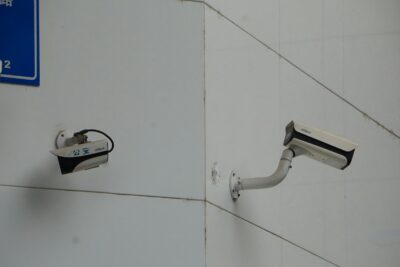Promoting Global Efforts to Reduce Carbon Emissions
The Role of International Cooperation in CCS Technology Development
The advancement of international cooperation in CCS technologies (Carbon Capture and Storage) is crucial for accelerating the development and deployment of these technologies, thereby promoting global efforts to reduce carbon emissions. In regions like Saudi Arabia and the UAE, where sustainable development is a strategic priority, the collaboration with international partners can significantly enhance the efficiency and effectiveness of CCS initiatives. By sharing knowledge and resources, these countries can drive innovation and implement cutting-edge solutions to mitigate climate change.
In Saudi Arabia, the Vision 2030 initiative underscores the importance of sustainability and environmental stewardship. International cooperation in CCS technologies plays a pivotal role in achieving these objectives. By partnering with leading global institutions and technology providers, Saudi Arabia is leveraging advanced CCS solutions to capture and store carbon emissions from industrial sources. This collaborative approach not only accelerates the deployment of CCS technologies but also fosters the exchange of expertise and best practices, enhancing the overall effectiveness of carbon reduction efforts.
Dubai, a city renowned for its commitment to innovation and sustainability, is also actively engaging in international cooperation to advance CCS technologies. The city’s strategic partnerships with global environmental organizations and technology firms are driving the development and implementation of state-of-the-art CCS solutions. By integrating AI and machine learning, Dubai is optimizing the performance of CCS systems, ensuring that carbon capture and storage processes are efficient and cost-effective. This proactive approach not only supports Dubai’s sustainability goals but also positions the city as a leader in the global fight against climate change.
AI and Blockchain: Revolutionizing CCS Technology Implementation
The integration of AI and blockchain technology in CCS technology implementation significantly enhances efficiency, transparency, and scalability. AI algorithms can optimize carbon capture processes, monitor storage sites, and predict maintenance needs. This capability is particularly valuable in regions like the UAE and Saudi Arabia, where the efficient management of carbon emissions is critical for meeting sustainability targets.
In Saudi Arabia, AI-driven CCS projects have been instrumental in improving the performance and reliability of carbon capture systems. By analyzing data from various sensors and monitoring devices, AI systems can detect anomalies, optimize capture processes, and ensure that storage sites are secure. This real-time analysis not only enhances the efficiency of CCS operations but also supports long-term environmental management and sustainability efforts.
Blockchain technology further strengthens the integrity and transparency of CCS operations. In Dubai, blockchain is used to create an immutable record of carbon capture data, storage activities, and operational decisions. This transparency is crucial for maintaining public trust and ensuring accountability in carbon management. By providing a secure and decentralized platform for data storage and sharing, blockchain technology facilitates better coordination and collaboration among various stakeholders, including government agencies, energy companies, and the public.
Building Sustainable and Resilient Energy Systems
For business executives and entrepreneurs in Saudi Arabia and the UAE, international cooperation in CCS technologies represents a significant opportunity to enhance sustainability and resilience. By collaborating with global partners, businesses can access cutting-edge CCS solutions, reduce their carbon footprint, and contribute to the global effort to mitigate climate change.
In Riyadh, businesses are increasingly incorporating CCS technologies into their corporate sustainability initiatives. These projects enable companies to capture and store carbon emissions from their operations, demonstrating their commitment to environmental stewardship. This proactive approach not only helps businesses build a positive reputation but also ensures that they are prepared to comply with emerging carbon regulations.
Dubai’s entrepreneurial ecosystem is also recognizing the benefits of international cooperation in CCS technologies. By leveraging AI and blockchain technologies, businesses can optimize their carbon capture processes, ensure data integrity, and enhance transparency. This integration not only supports the city’s vision of becoming a global leader in smart and sustainable urban development but also contributes to the overall sustainability and resilience of the business community.
Leadership and Management Skills in CCS Technology Deployment
Effective deployment of CCS technologies requires strong leadership and management skills. Business leaders in Saudi Arabia and the UAE are increasingly focusing on developing these skills to enhance their sustainability efforts and drive innovation in carbon management. The integration of advanced technologies provides the data and insights needed for informed decision-making, ensuring that leaders can manage CCS projects effectively.
In Riyadh, leadership training programs are incorporating CCS technology deployment scenarios to equip executives with the skills needed to handle these complex projects. These programs emphasize the importance of data-driven decision-making, leveraging the capabilities of AI and blockchain to enhance transparency and accountability. This approach not only builds trust with stakeholders but also ensures that CCS projects are effective and inclusive.
Dubai’s business community is also focusing on developing leadership skills tailored to CCS technology deployment. By understanding how to use advanced technologies effectively, leaders can ensure that their organizations are responsive to carbon management challenges and committed to sustainability. This not only enhances the resilience of businesses but also contributes to the overall development and stability of the city.
The Future of CCS Technologies: Embracing Innovation
The future of CCS technologies lies in the continuous integration of new technologies and innovative approaches. The metaverse and generative AI are among the emerging technologies that have the potential to revolutionize CCS technology deployment, providing more immersive and interactive tools for research, development, and real-time management.
In Saudi Arabia, the metaverse is being explored as a platform for virtual CCS technology training. By creating virtual environments that simulate real-world scenarios, researchers and developers can gain hands-on experience without the risks associated with live experiments. This approach not only enhances the effectiveness of R&D efforts but also ensures that stakeholders are better equipped to handle carbon management challenges.
Dubai is at the forefront of integrating generative AI into CCS technology deployment. This technology can generate detailed simulations and models, providing a deeper understanding of potential impacts and outcomes of CCS projects. By analyzing these models, authorities and businesses can develop more effective carbon management strategies and improve overall sustainability. This innovative approach ensures that CCS technology deployment efforts are proactive, data-driven, and aligned with the needs of the community.
Conclusion: Building Sustainable Energy Systems with CCS Technologies
As Saudi Arabia and the UAE continue to grow and develop, international cooperation in CCS technologies is crucial for enhancing energy efficiency and sustainability. By leveraging advanced technologies such as AI, blockchain, and the metaverse, these regions are setting new standards in carbon management. Business leaders and executives must continue to invest in these tools, ensuring that their operations are sustainable, compliant, and aligned with the needs of the community.
In conclusion, international cooperation in CCS technologies is a critical step toward building resilient, sustainable, and transparent energy systems. By focusing on data analysis, innovative technologies, and strong leadership, Saudi Arabia and the UAE are leading the way in effective carbon management, setting an example for the rest of the world to follow.
—
#InternationalCooperation #CCSTechnologies #CarbonCaptureandStorage #KnowledgeSharing #GlobalEfforts #SaudiArabia #UAE #AIinEnvironmentalManagement #SustainableDevelopment























